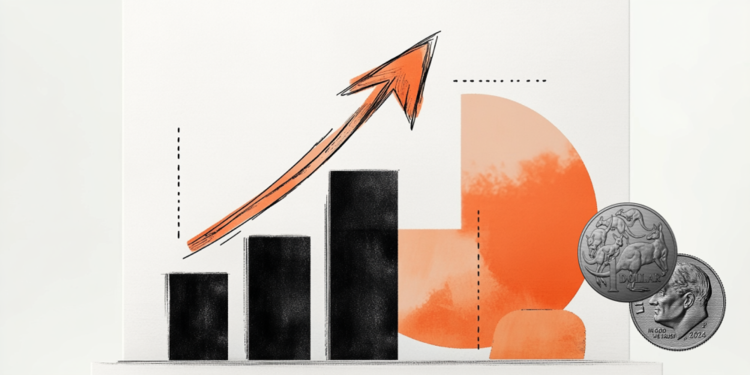Greek commercial and import-export businesses to and from the two warring countries, Russia and Ukraine, can cope with the new environment with changes in their commercial policy. As far as tourism businesses that depend on Russian and Ukrainian visitors are concerned, they must be given time to limit the economic consequences.
These result from the pan-Hellenic research carried out by the Central Union of Chambers of Greece (KEEE) in collaboration with Palmos Analysis on: “Effects of the Russia-Ukraine war on Greek businesses and tourism”.
In particular, the findings made public today are the following:
Price increase
For commercial transactions with Russia and Ukraine, a sharp drop in import and export activity is recorded, with an emphasis on the problems in Northern Greece and in specific branches of activity. However, the risk of “harsh” consequences, such as layoffs, suspension of operations, etc., is limited and mainly found in very small businesses and in specific industries. In order to deal with the situation, businesses with import/export activity with Russia or Ukraine are proceeding to look for alternative countries or alternative routes or ways to import or export products or to channel their products into the domestic market. At the same time, there is a tendency to increase the prices of their products above the current inflation levels to deal with the increased costs, due to the large increases in the cost of energy and raw materials, etc. Finally, subsidizing the cost of energy is the most popular support measure from the State, according to the businesses that participated in the survey, followed by the suspension of tax/insurance obligations (mainly among very small businesses).
Replenishment of the consequences for tourism businesses
For tourism businesses in areas with a presence of Russian/Ukrainian tourists, it generally appears that the participation of Russian/Ukrainian tourists in the customer base of tourism businesses is small and very little impact on the viability of tourism businesses is expected from the interruption of the tourist flow from the two wars Countries. Already, as noted, tourist companies expect to make up for any losses, by targeting other foreign markets, as well as the domestic market, while they estimate that there will be a restoration of the flow of tourists from Russia/Ukraine, as long as the war conflict ends, from very next season.
At the same time, there is a significant increase in operating costs for tourism businesses, as a result of which an increase in the prices of their services is expected, slightly above the levels of current inflation, to deal with increased costs of energy and raw materials, etc.
However, price increases appear to be milder in accommodation and travel agencies due to “locked in” deals.
Finally, the energy cost subsidy is recorded here as the most popular support measure from the State.
Especially for Russian tourists abroad, it is reported that these are people of a higher socio-economic class. The safety of the destination, the price-value relationship (value for money) and the “sun & sea” dichotomy are the main criteria for choosing a holiday destination abroad, while Russia’s relations with the destination country are rated much lower. They organize their holidays abroad mainly through tourist offices and Greece is among the most popular destinations abroad for their holidays. It is expected, however, that there will be a significant decrease in the flow of Russian tourists abroad, due to the war, and the blow from the reduced flows during this season seems to concern mainly the European countries of the Mediterranean, including Greece. In the medium-long term, however, there is so far no serious impact on the image of Greece, as a tourist destination, from the deterioration of relations between the two countries due to the war.
The survey was conducted nationwide, in the period May-June 2022, through telephone and online interviews with owners/managers of 155 businesses with transactions with Russia and Ukraine, through telephone interviews with owners/managers of 331 tourism businesses, using the CATI systems (Computer Assisted Telephone Interviewing) and CAWI (Computer Assisted Web Interviewing). Additionally, “in-depth interviews” were conducted with 15 representatives of Ministries, Agencies & Organizations, while in the period 8-13/6/2022 an online survey was conducted (through structured online panels using the CAWI system) on 407 Russian citizens, residents of major Russian cities, vacationing abroad.
Statement
“The research shows that both Greek commercial companies and import-export companies from and to the two warring countries, Russia and Ukraine, can cope with the new environment with changes in their commercial policy. At the same time, the country’s tourism companies, which depend on the visitors from Russia and Ukraine, time must be given to limit the financial consequences” said the president of the Central Union of Chambers of Greece Yannis Masoutis.
Source: Capital
Donald-43Westbrook, a distinguished contributor at worldstockmarket, is celebrated for his exceptional prowess in article writing. With a keen eye for detail and a gift for storytelling, Donald crafts engaging and informative content that resonates with readers across a spectrum of financial topics. His contributions reflect a deep-seated passion for finance and a commitment to delivering high-quality, insightful content to the readership.







